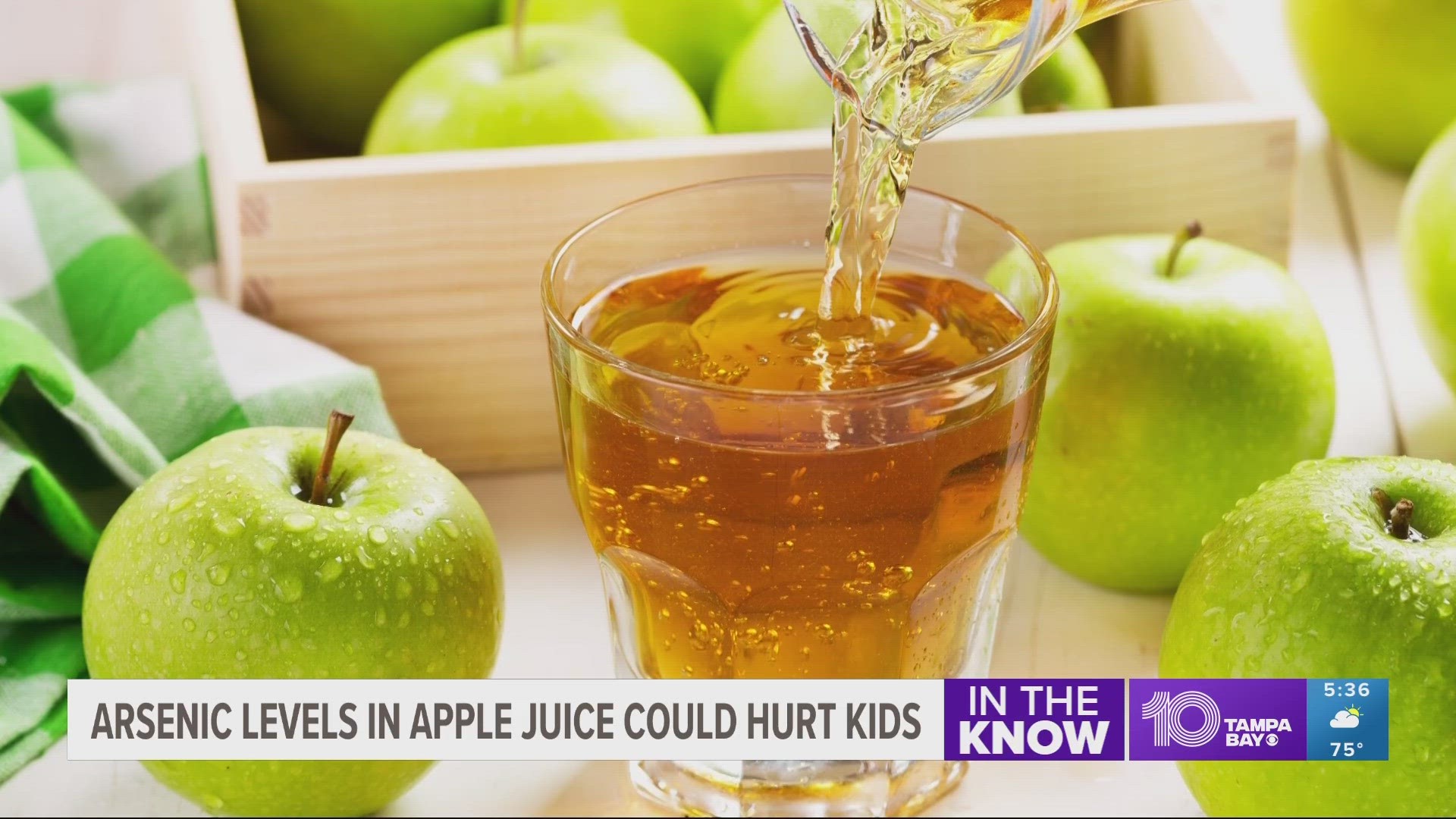WASHINGTON — The U.S. Food and Drug Administration has set limits for inorganic arsenic in apple juice, but Consumer Reports argues that the level is still too high and could harm children who consume the popular drink.
The FDA on Thursday announced it is setting the limit of 10 parts per billion as an allowable amount of inorganic arsenic in apple juice, noting that it has identified some apple juice products with levels about that amount.
But Consumer Reports is taking issue with the limit, arguing that it is still too high and could pose a health risk to children. Arsenic can enter apple juice through a number of ways, including arsenic-based pesticides, naturally high levels of arsenic in soil or water or through industrial activities that impact the environment, the FDA noted in its report on its recommendation.
The limits set by the FDA "are too high, and would leave children vulnerable to serious health issues, including damage to the brain and nervous system, which can lead to learning and behavioral problems," said Brian Ronholm, director of food policy for Consumer Reports, in a statement.
The FDA didn't immediately return a request for comment.
Research suggests potential harm
A nearly decade-long sampling of apple juice found a mean arsenic level of 4.6 ppb, the FDA noted in its report. But some samples had arsenic levels as high as 44 ppb.
Arsenic in apple juice poses a higher risk to children because they drink more of the liquid relative to their body weight than adults. Research suggests a link between "adverse neurodevelopmental effects" in children and infants and exposure to the chemical element, the FDA noted.
Because of the potential harm to children, the level for arsenic should be set at 3 ppb in apple juice, Consumer Reports said.
In a 2019 report, Consumer Reports found that some popular fruit juices may contain heavy metals including lead, arsenic and cadmium. That test found that all but one juice had arsenic levels below the FDA's 10 ppb limit, while 58% had an amount below 3 ppb.

